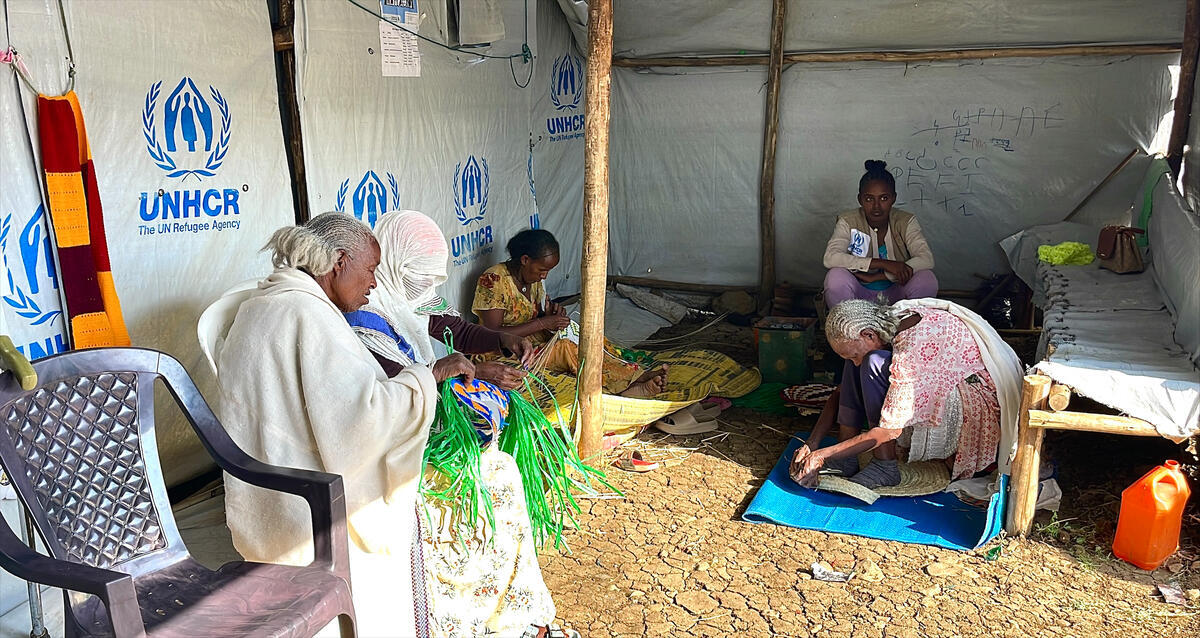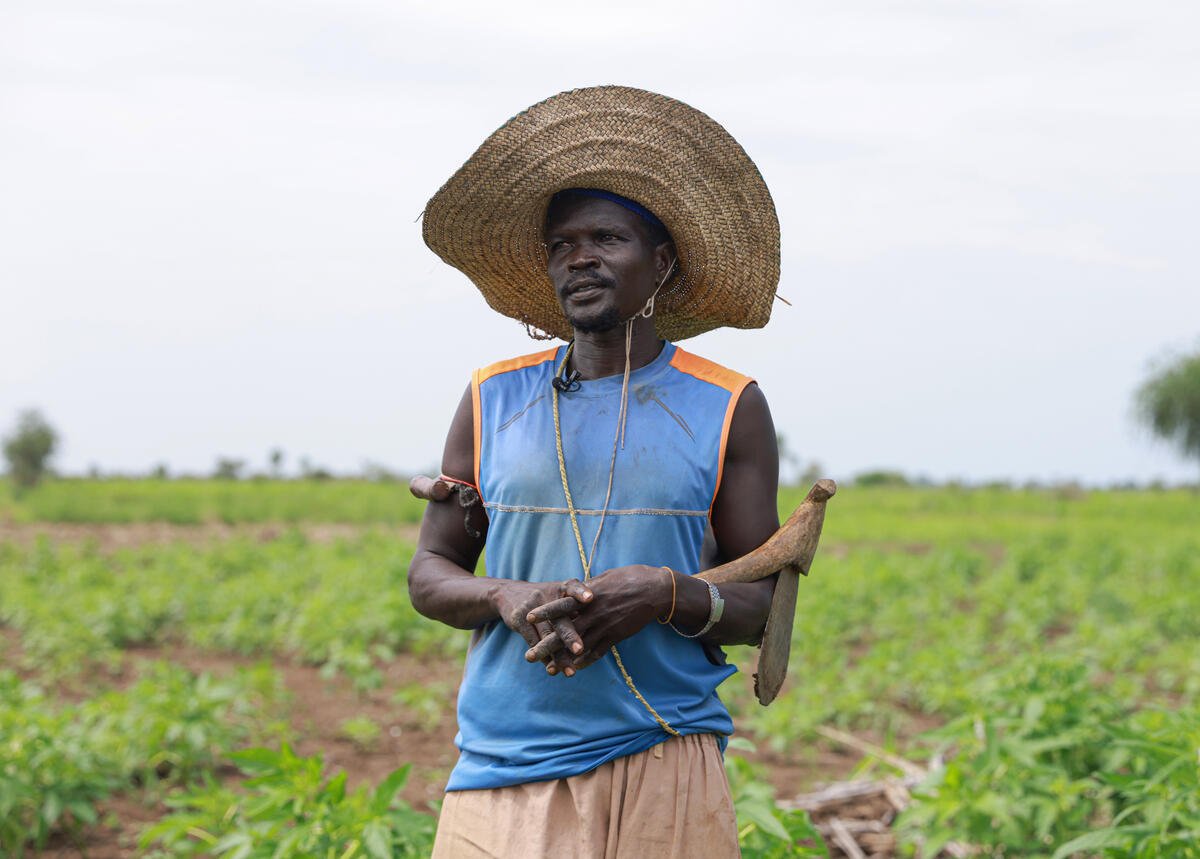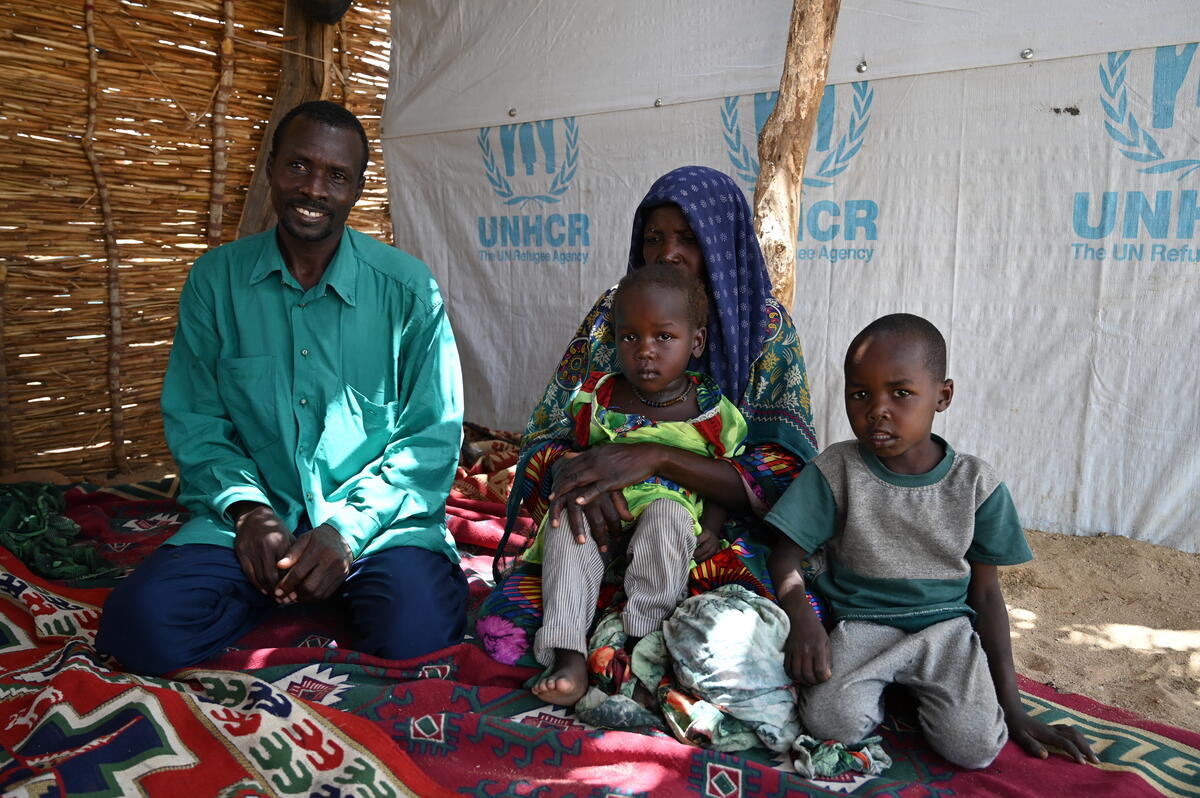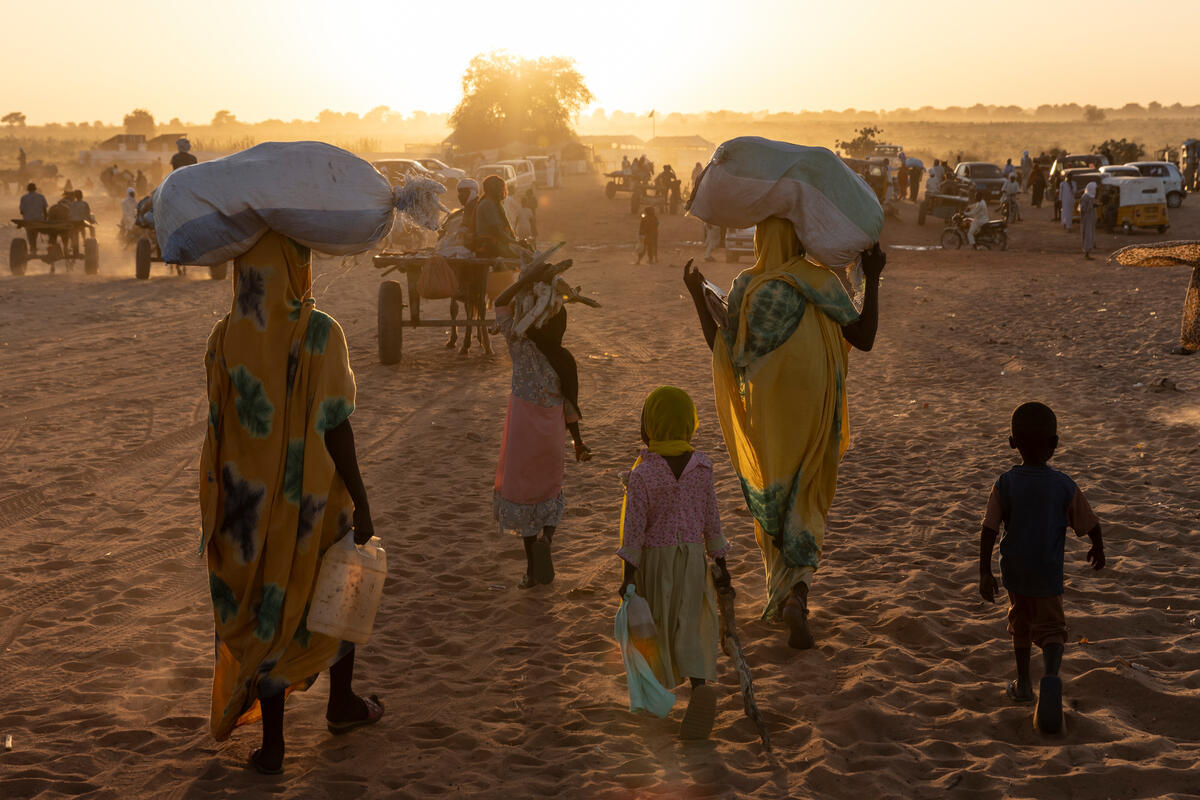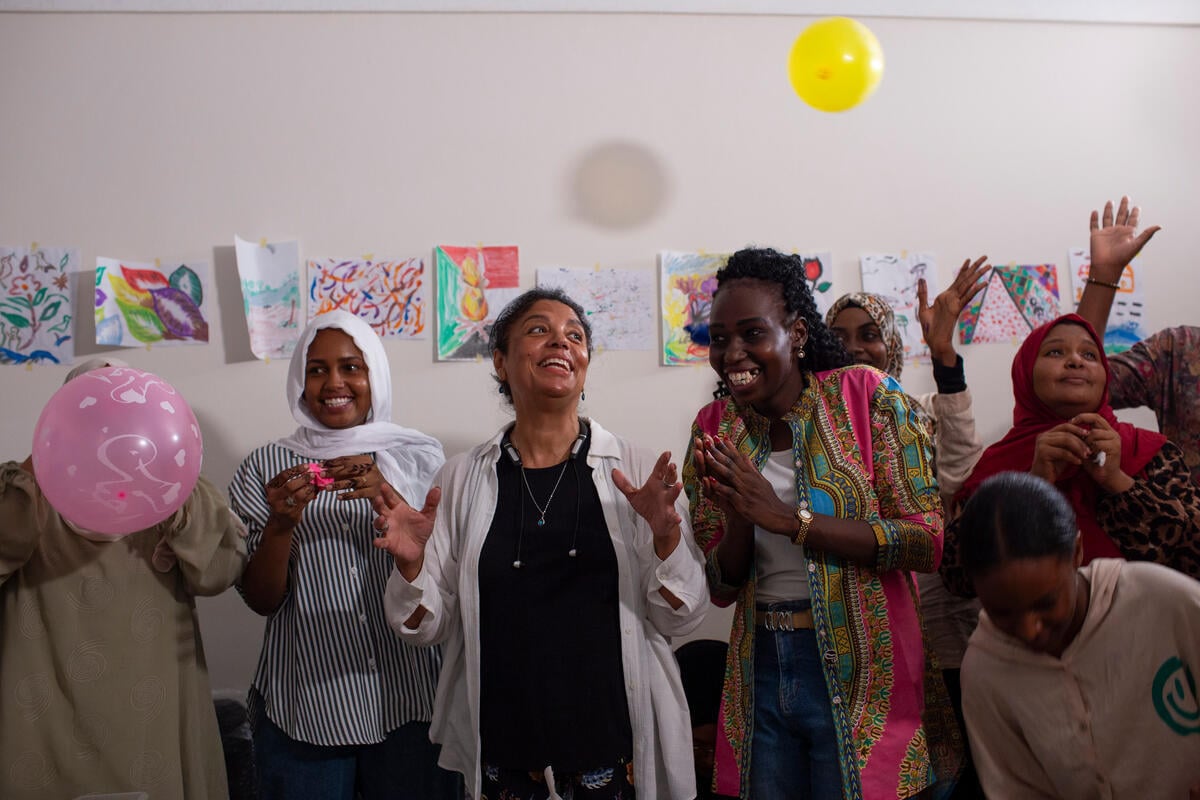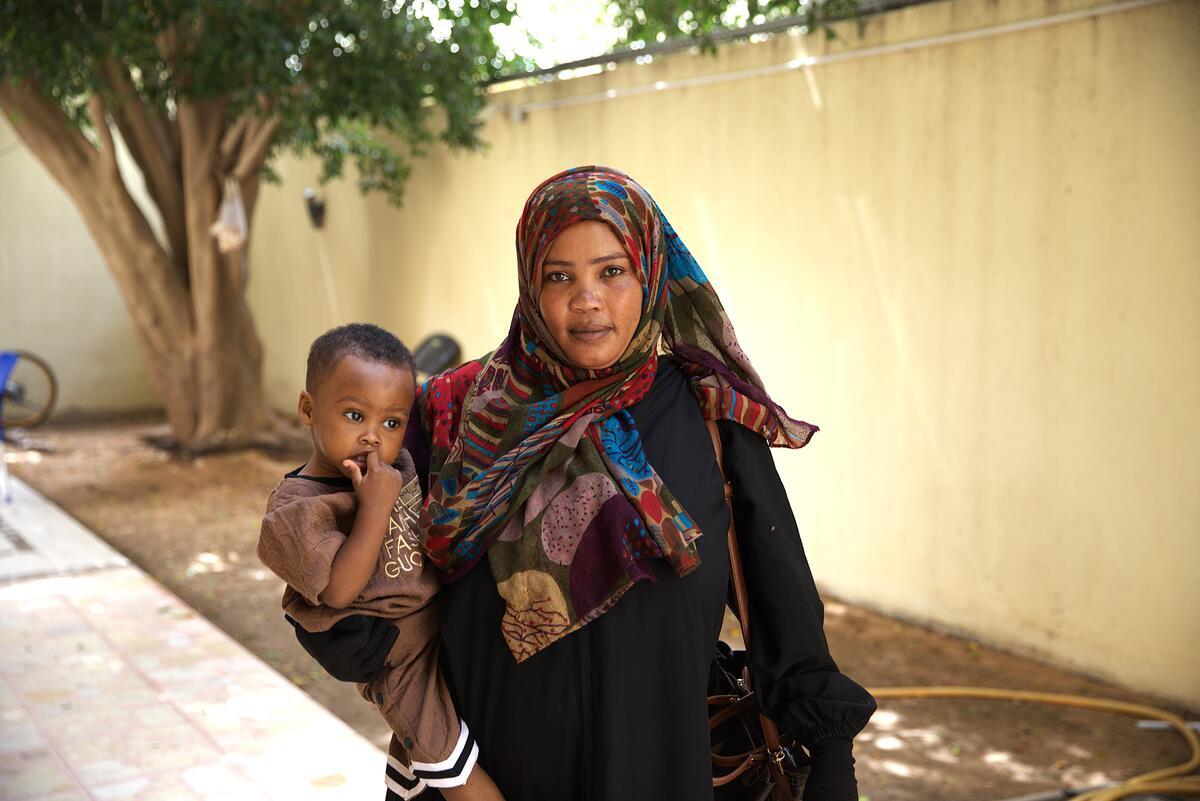Sudanese woman haunted by attack that drove her to Ethiopia
Sudanese woman haunted by attack that drove her to Ethiopia

SHERKOLE REFUGEE CAMP, Ethiopia, 24 February (UNHCR) - Five months after the day she fled from Sudan's Blue Nile State, Gisman Usman still struggles with the trauma of the bombing of the place where she slept, her three missing brothers and the loss of her left leg.
On the September night when the Antonov bomber arrived over her grandmother's home in Derem, the 20-year-old awoke to a blast that ripped away the back of her tin-roof house. Her first instinct was to run.
But Usman couldn't move; her leg had been badly wounded.
The memories of her ordeal arrive to her in ghostlike fragments that linger in the night and prohibit sleep. She recalls the two young boys who pulled her from the wreckage of her home.
The boys - Nazar Shiraj and Mohamed Adam both 15 years old - found a donkey cart to take her away except the donkey had been killed. They unhitched the cart from the dead animal and one boy slowly pulled the cart forward while the other pushed. It took 30 minutes to reach the safety of the forest outside their village.
She remembers people calling for an ambulance to come from the nearby town of Kurmuk on the border with Ethiopia. Her mother, Soriah Ibrahim, 40, spoke to her with as much calm as she could muster.
"My Mother told me 'you have to be patient. You have to stop crying,'" Usman said. "I didn't believe her words. I thought she was lying to me. I knew I would die."
Ibrahim too remembers that night in the bush. And while she never told her daughter otherwise, she too believed that Usman would perish. "I tried to tie the wound with clothes but she was bleeding away," Ibrahim said. "I didn't tell her but I had lost hope. But I was her mother so I had to concentrate. Then the bleeding began to stop."
It took more than 24 hours for the ambulance to arrive. When it did, mother and daughter got into the vehicle while Usman's father and three brothers stayed behind to gather their belongings. During the ride to Kurmuk, Usman could only think of the brothers and father she left behind. Her father Gassim Darmaj is around 60 years old. But her bothers, Najuwah Gassim, 15, Dar es Salam Gassim 7 and Usham Gassin who is a 1 year old, are all too young to be in a war zone.
It was the last time she saw them.
The amputation of her leg took place in a dark hospital in Kurmuk, which was also the objective of bombing attacks. "At that time, when I did the amputation, there were so many coming in," said Dr. Evan Atar, who performed the operation. "We had to work quickly." Her leg was amputated just above the kneecap. Ibrahim provided a blood transfusion to her daughter. Usman was bandaged then carried across the border to Ethiopia in a donkey cart.
Once she arrived to Ethiopia, Usman spent nearly a month in the hospital at Sherkole refugee camp. Her wound healed slowly and she was given a wheel chair by a UNHCR partner, the Rehabilitation and Development Organization (RADO).
After the wound began to heal the organization took her to Addis Ababa for physical therapy. Usman says she is grateful for the therapy but what she remembered most about the visit to Addis was that it was the first time she stayed in a modern hotel.
"One day two women from the hotel came to my room and sat next to me on the bed," Usman says. "They just started talking to me in their language. I didn't understand them but I felt their smiles and they put their arms around me. We were all laughing."
Now that she is back in Sherkole refugee camp, Usman tries to push her mind to happy thoughts. When she cannot sleep, she thinks of the day she will be married and the children she will have. One day they will learn about the sleepless nights she endured.
Sitting on a bed outside her tent, Usman's also imagines the life of her three brothers. Sitting next to her mother, she closes her eyes and tries to imagine them alive and in their village. "Maybe now they are preparing the breakfast," she says. "They will have a meat for breakfast."
"What will they eat with that meat?" asks Ibrahim.
"They will have asida (yams) with their meat," says Usman. "They will say 'Gisman come and eat with us. Come and carry our younger brother.'"
By Greg Beals in Sherkole refugee camp, Ethiopia

